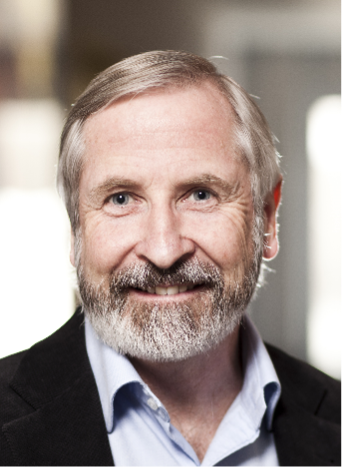Dr. Ray Rodgers delivers CRS Special Seminar
 Early May this year brought a sea of tulips to the Chicago campus, and along with it, another CRS special seminar. By virtue of being in the city for the second annual Reproductive Aging Conference, Dr. Ray Rodgers was able to join the CRS community on May 4th to chronicle his journey in the study of polycystic ovary syndrome (PCOS). Dr. Rodgers is a professor at the University of Adelaide where he has been investigating PCOS for about 16 years now. In the decades prior to that, his prolific research career was still primarily focused on the mammalian ovary and its endocrine functions, as he conducted his master’s and PhD research on clover infertility in sheep and ovine small and large luteal cells, respectively.
Early May this year brought a sea of tulips to the Chicago campus, and along with it, another CRS special seminar. By virtue of being in the city for the second annual Reproductive Aging Conference, Dr. Ray Rodgers was able to join the CRS community on May 4th to chronicle his journey in the study of polycystic ovary syndrome (PCOS). Dr. Rodgers is a professor at the University of Adelaide where he has been investigating PCOS for about 16 years now. In the decades prior to that, his prolific research career was still primarily focused on the mammalian ovary and its endocrine functions, as he conducted his master’s and PhD research on clover infertility in sheep and ovine small and large luteal cells, respectively.
In Dr. Rodgers’s captivating lecture, titled “Are we any closer to understanding the cause(s) of polycystic ovary syndrome?” he laid out the story of PCOS research, beginning in the early 20th century. PCOS is a condition that affects nearly 10% of women of reproductive age, and clinically it is often characterized by excess levels of steroid hormones known as androgens, among other factors. With the knowledge in mind that PCOS has a fetal origin and possibly genetic causes, Dr. Rodgers’s group used fetal bovine and human ovaries to examine PCOS candidate genes. Through this work, they were able to see the diseased ovary from a new perspective. Dr. Rodgers said of these findings, “This is way more exciting than what you find in the adult human ovary, where a lot of these genes either aren’t expressed, or if you compare a PCOS ovary with a control ovary, you don’t get any difference in the level of expression.”
After a long struggle to reconcile their fetal fibroblast culture findings with existing literature, the group proposed a new model on ovarian development in 2014 that has since been confirmed by many others in the field. Bringing his humorous and light-hearted nature into his talk, Dr. Rodgers joked about the differences in animal models that may have contributed to these alternate theories, quipping, “I just like stirring people up...all the mouse people ignore everything from the human and the bovine, so might as well have a shot at them.” His group went on to look at the influence of transforming growth factor-beta (TGF-beta) on androgen receptors as well as differences in collagen between tissues from organs that are involved metabolic processes. Ultimately, Dr. Rodgers’s work has led to a potential theory: “Inhibition of TGF-beta might be producing polycystic ovary,” he shared with the group. “And then the question is ‘would this also affect the development of other organs and tissues if you inhibited TGF-beta?’ And, the answer would be yes.” Still, he emphasized, “It could be the cause of PCOS, but there’s still a long way to go before we get to that stage.”
Dr. Rodgers’s talk was one of the final CRS events this quarter, following many interesting and highly engaging speakers, who shared their work with the CRS over the past few months. As the academic year draws to a close, the CRS community looks forward to more learning opportunities of this nature in the fall.